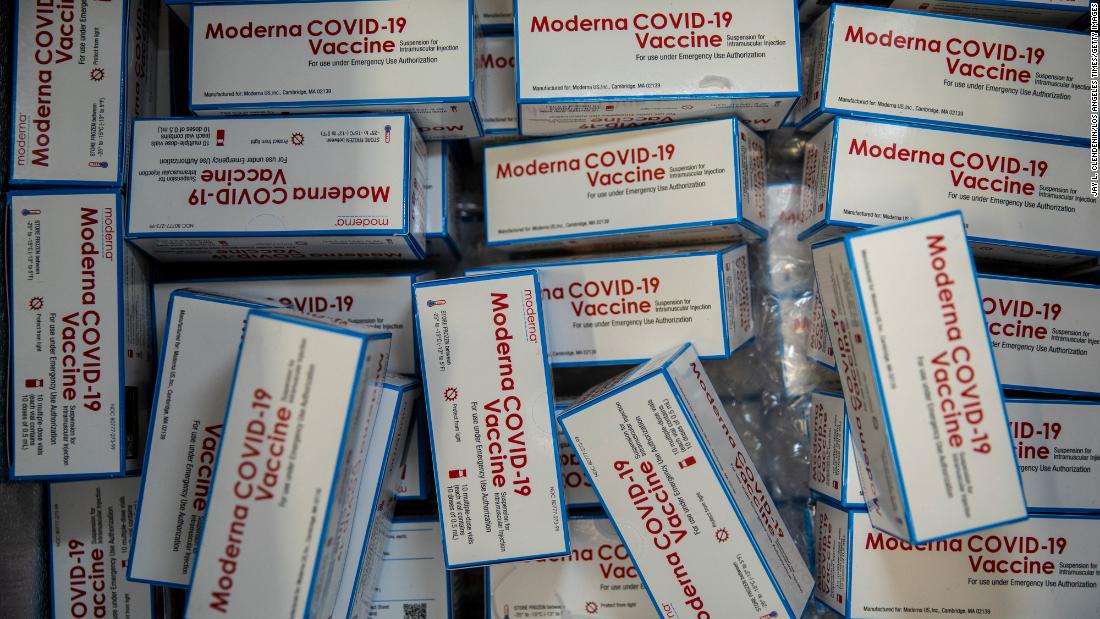FDA vaccine advisers are meeting to consider Moderna Covid-19 vaccine boosters
Moderna is requesting authorization for a 50-microgram booster dose — half the size of the 100-microgram doses used in the primary series of the two-dose vaccine — at least six months after the second dose, and only for certain groups: people age 65 and older; people ages 18 to 64 who are at high risk of severe Covid-19; and people ages 18 to 64 whose exposure to the coronavirus in their settings or jobs put them at risk for Covid-19 complications or severe illness.
T
hey also heard from Israeli researchers who had previously spoken in support of Pfizer’s booster application.
Most people in Israel received the Pfizer vaccine, and the country began rolling out boosters well ahead of the United States. Dr. Sharon Alroy-Preis of Israel’s Ministry of Health told the FDA advisers on Thursday that as it began to offer booster doses to more age groups, the percentage of positive Covid-19 tests dropped to 2.6%, and the overall incidence of severe cases declined.
“The booster dose in Israel was effective and so far, has a safety profile similar to the other doses,” Alroy-Preis said.
“We have improved protection against confirmed infection for all ages 16 and above. We have improved protection against severe disease in ages 40 and above,” Alroy-Preis said. “It could impact even younger than 40 years old for severe and critical disease and mortality.”
The FDA’s committee of independent advisers typically discusses and makes recommendations to the agency around vaccine authorizations and approvals, and the agency then makes the final decision about whether to OK a vaccine. If the FDA gives emergency use authorization to Moderna boosters, vaccine advisers to the US Centers for Disease Control and Prevention will meet to discuss which groups to recommend them to. Typically, shots can be administered once the CDC director signs off on the recommendation.
CNN’s Jacqueline Howard contributed to this report.
![]()


